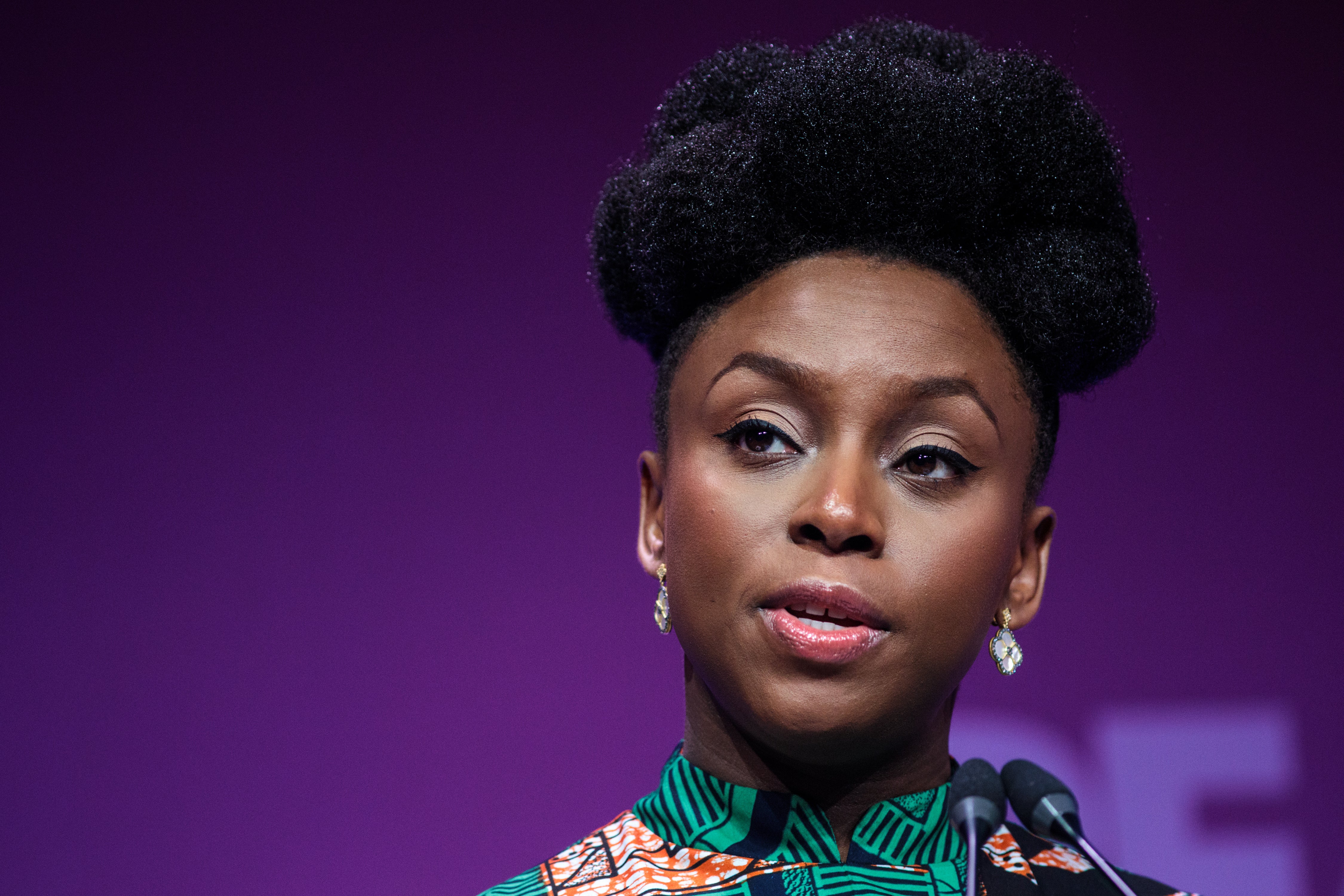
Award-winning novelist Chimamanda Ngozi Adichie never minces her words. After proclaiming that there’s no one way to tell a story, the Nigerian writer urged us all to be feminists. Now, in a new conversation with Vulture, Adichie weighs in on a wide-ranging set of topics, including how she feels about the #MeToo movement.
Though she’s happy the movement has encouraged victims of sexual harassment and violence to come forward, Adichie is concerned about how the women who share their stories are judged.
“What I like about #MeToo is the idea that now women’s stories have the possibility of being believed, which is almost revolutionary,” she said. “Now a woman can tell her story and she might still get castigated, but there’s the possibility that she gets public support and that there are consequences for whoever harassed or assaulted her. That’s not happened before. But the shape of the narratives around #MeToo can still be troubling.”
According to Adichie, far too often women — like young Black men and women who are killed by police — have to be seen as “perfect” in order to receive sympathy from others for being assaulted or harassed.
“It’s the idea that a woman doesn’t deserve sympathy unless she’s ‘good,’” Adichie argued.
“I’m sorry to get into race, but it’s similar to what happens with Black men, where in this country it seems that they are not deserving of sympathy unless they are pure. If a young boy is murdered because he was going off to buy Skittles but we learn that he smoked marijuana, then that somehow makes him not deserving of sympathy,” she explained. “He shouldn’t have to be perfect to deserve sympathy and that applies to women as well. And, also, the way women are cast as innocent or blameless or helpless undercuts the idea of female agency.”
While Adichie commends the movement for empowering victims to tell their stories, she does think the #MeToo movement lacks nuance, particularly around how we see perpetrators and whether or not redemption is possible.
“This whole process of talking about sexual assault now is interesting. There are times I feel uncomfortable with the blanket condemnation that happens, which is why #MeToo maybe has to be a case-by-case thing,” Adichie said after conceding she still sees one of her main characters, Ugwu in Half of a Yellow Sun, as a “good person” even after he participated in a gang rape.
Still, Adichie understands why many feel nuanced conversations about sexual violence aren’t helpful at the moment, particularly when victims still face harsh criticism.
“With the #MeToo movement, it’s still so young and fragile that I understand the impulse to say that the perpetrators on the other side of it are completely evil,” she rationalized.
“And if you acknowledge nuance you run the risk of the movement falling apart,” Adichie asserted. “I understand that, but I’m also a person who believes in redemption — to a certain extent. Some people I don’t think are redeemable.”
